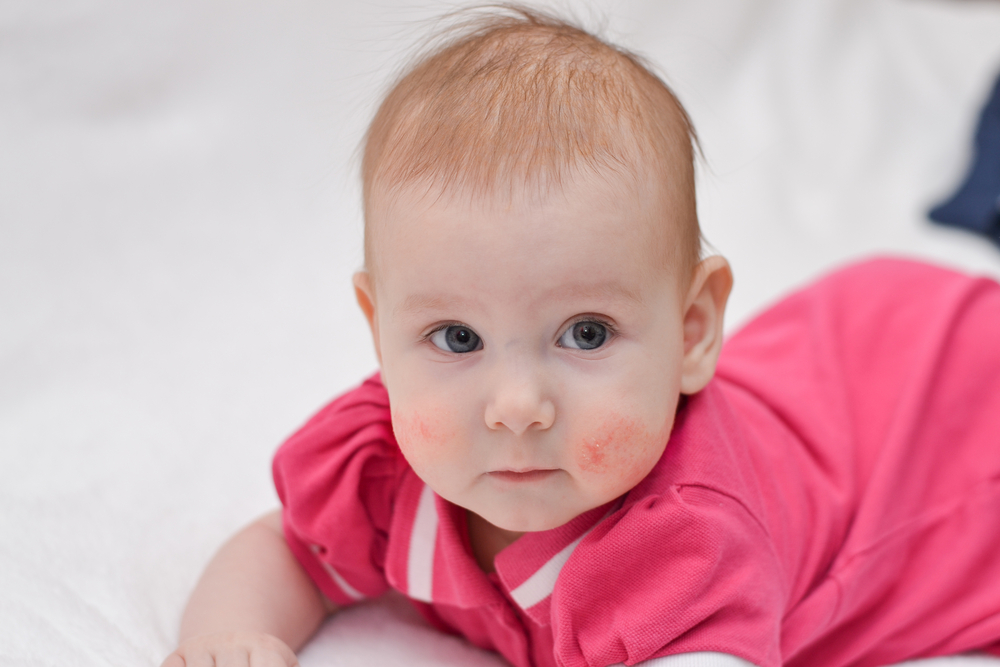Important Things You Need to Know about Eczema
Eczema is a non-contagious skin problem which mostly affects infants and kids. It is often diagnosed with the redness or itchiness in a certain part of the skin. Scratching or rubbing the affected area could lead to open pores and create cracks in the skin, thereby opening doors to various infections.
Eczema can be of seven types, each having its own characteristic symptoms and causes. To prevent them, one should keep the skin moisturized, take bleach bath, prevent the skin from getting damp by taking short hot water baths, use gentle cosmetics, and avoid the triggers that can cause complications.

Causes of eczema
In case one or both the parents have been diagnosed with the condition, the risk of inheriting eczema becomes higher in kids. Some of the external triggers are as follows:
- Stress and hypertension.
- Chaffed dry skin.
- Contact with elements like synthetic fabrics, jewelry, dandruff, pollen, microbes, some food items, soap, and wool that can cause irritation.
- Rough detergents, plastic, rubber, latex, lotions, solvents in moisturizer, etc.
- Hormonal changes in women, low and high humidity, cold and hot weather and perspiration are other environmental factors the cause eczema.
Symptoms of eczema
The symptoms of eczema vary depending upon the age of the patient.
Kids over two years to those below adulthood can get rashes on the knees, elbows, neck, ankles, wrists, and creases between legs and buttocks. In the course of time, these rashes can get bumpy with their color darkening and can often thicken due to lichenification.
In the case of adults, the rashes on dry skin can cause permanent itchiness, scaling, and infections. The symptoms of different types of eczema are –
- Atopic dermatitis –rashes on creases of knees and elbows, lightening or darkening or thickening of the skin, developing bumps with oozing fluid, etc.
- Contact dermatitis –redness, itching, burning sensation on the skin, inflammation, hives, blisters with oozing fluid, development of crusts, scaling or thickening of the skin.
- Dyshidrotic eczema –formation of fluid blisters on the soles, palms, toes, etc. with itchiness, flaking, cracking, or scaling of the skin.
- Hand eczema –redness, itchiness or dryness of the hands, the formation of blisters and cracks, etc.
- Neurodermatitis –Formation of thickening scaly patches on the legs, arms, nape, under feet, scalp, genitals, and the back of hands. Itchiness during sleep or relaxation, bleeding if scratched.
- Nummular eczema –Formation of coin-shaped spots with itchiness and scaling.
Treatment for eczema
As there are different causes for different types of eczema, one has to let the doctor know whether they have been under stress, the skin products used, the time spent in the bath and regular activities like swimming in the chlorinated pool or hiking through woods. Certain home remedies that can be useful are as follows:
- Taking hot baths and keeping your skin moisturized.
- Using non-fragrant skincare products and mild washing products.
- Patting or air-drying skin after exercising or bathing instead of rubbing it.
- Deter from scratching.
- Wearing loose and irritation-free clothing.
- Avoiding rapid temperature changes and direct contact with other triggers.
A number of medications, both prescription and over-the-counter (OTC) medications, along with biologic medicines, immunosuppressants, and phototherapy are common treatments. Anti-inflammatory ointments, topical and systemic corticosteroids, barrier-repair moisturizers, antihistamines, anti-fungal creams, and topical calcineurin medications are also effective for treating mild to medium degree eczema. However, it is advisable to consult your doctor before taking any medications to treat eczema.


